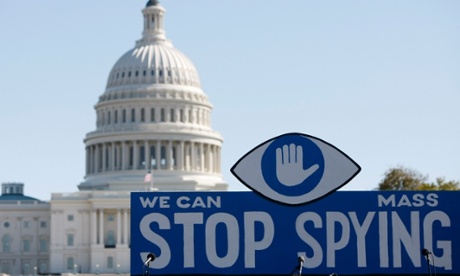By Lyndsey Kelly
Impunity Watch Reporter, North America
WASHINGTON D.C., United States of America – Patrick Leahy, the Senate Judiciary Chairman, is pushing the Freedom Act in order to stop the National Security Agency from collecting the phone records of millions of Americans. The bill would ban bulk collection of phone records by the NSA, while still allowing targeted surveillance of suspected terrorists.

Leahy has stated that he has already gained the support of the Republicans, and can win approval of the bill when Congress returns for session after the 4 November election. With Congress’ approval, the bill will be passed this year. The legislation would require the government to disclose the individuals whose data has been collected and report how many of these individuals were American citizens. Further, the Act would create a panel of special advocates, which would be used to address issues concerning privacy and civil liberties.
If the Freedom Act is not passed, the National Security Agency will likely be left without the necessary surveillance capabilities to conduct legitimate and necessary investigations of suspected terrorists. Previously, the NSA has used the Patriot Act anti-terrorism law, in order to conduct authorized surveillance. However, this act is set to expire on 15 June.
Section 215 has been the basis for collecting and storing records from United States phone companies. These records have been used by the NSA in data sweeps, whereby they used telephone numbers, the date and time of phone calls, and the length of the calls in surveillance investigations. However, this section did not give the NSA authority to include records of actual conversations. The FBI and other law enforcement agencies have also used Section 215 in obtaining business records, driver’s license records, and credit card records of suspected terrorists.
The bill has garnered support from groups such as the American Civil Liberties Union, The Information Technology Industry Council (ITIC), and the National Rifle Association. The ITIC stated in a letter to the senate, “The USA Freedom Ac will send a clear signal to the International community and to the American people that government surveillance programs are narrowly tailored, transparent and subject to oversight.”
For more information, please see the following:
THE GUARDIAN – Time is Running Out on the USA Freedom Act – Which could Drastically Curtail US Surveillance Powers – 3 Oct. 2014.
USA TODAY – Congress May Ban NSA Phone Data Collection – 3 Oct. 2014.
US NEWS – Should Americans Be Worried About The National Security Agency’s Data Collection? – 3 Oct. 2014.
WALL STREET JOURNAL – NSA Phone-Date Collection Program Set For Legal Challenge – 1 Sept. 2014.
 6 October 2014 – The Russian Investigative Committee has for the fourth time refused the application from Sergei Magnitsky’s mother to investigate the murder of her son in Russian police custody after he uncovered and testified about the theft of $230 million from state coffers by members of the criminal gang and corrupt Russian officials.
6 October 2014 – The Russian Investigative Committee has for the fourth time refused the application from Sergei Magnitsky’s mother to investigate the murder of her son in Russian police custody after he uncovered and testified about the theft of $230 million from state coffers by members of the criminal gang and corrupt Russian officials. 